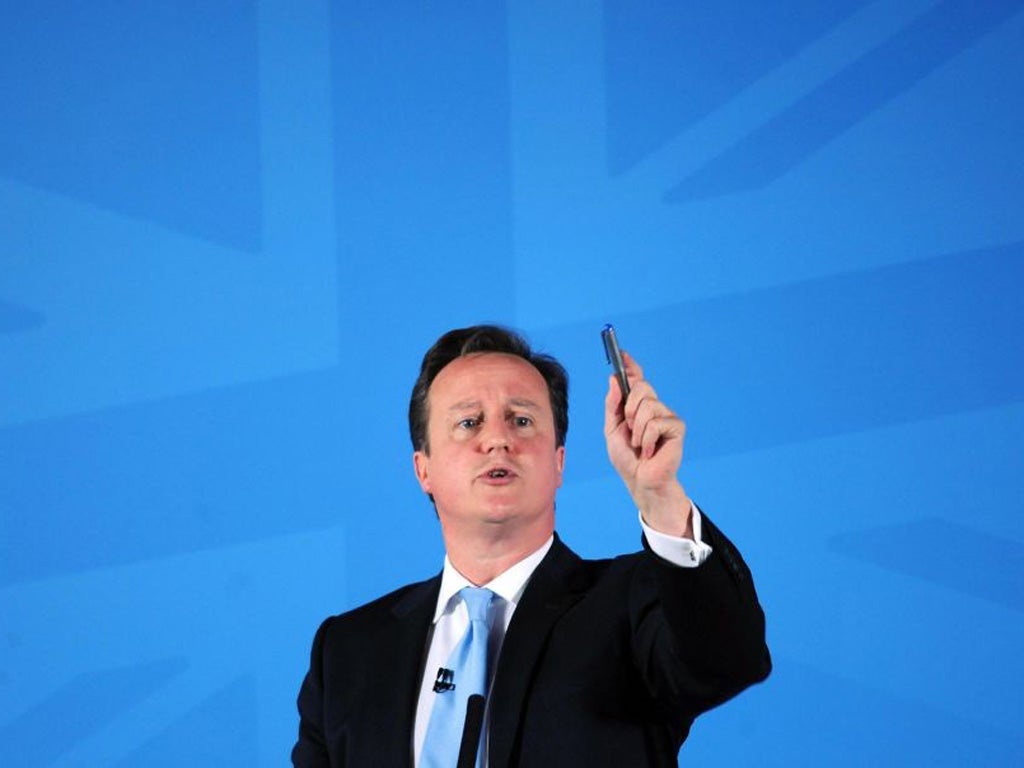Andrew Grice: Dig a little deeper and it's been a good week for the Tories
Inside Westminster: Unusually, more than half of voters could be described as ‘don’t knows’ or floaters


The political row over the bank rate-rigging scandal has improved the mood in Downing Street. An over-excited George Osborne may have gone a bit over the top with his allegations about Ed Balls's role in urging Barclays to keep down the Libor rate, claims the Chancellor has not yet been able to substantiate. But No 10 judges that the controversy will result in a net benefit for the Conservatives.
The scandal happened on Labour's watch. Never mind that the Tories at the time were demanding even lighter City regulation; anything that reminds voters about Labour's economic record can only hinder its efforts to regain economic credibility, Cameron aides say.
I am not so sure. While the Barclays revelations may have fuelled public anger about bankers, people will look to the current government to stop a repeat of the sort of unacceptable behaviour that Ed Miliband condemned last year – before it was fashionable to do so.
However, there is relief in Downing Street that the latest banking controversy has shifted media attention away from government U-turns. By clearing up the messy leftovers of a badly-cooked Budget, Mr Cameron and Mr Osborne hope the damage has been contained – crucially, before it translates into weakness and incompetence, labels that are very difficult to unpin. "We feel we have turned a corner," one close Cameron ally said.
Another reason to be cheerful is the latest private polling for the Conservatives. It raised the spirits when it was presented to the 1922 Committee of Tory MPs last week by Andrew Cooper, No 10's director of strategy and the founder of the polling company Populus. He argues that the headline poll figures, giving Labour a healthy lead, do not reflect the nation's underlying mood.
Mid-term blues that afflict most governments do not mean they are heading for defeat, he says. Only one in three people polled say they will definitely vote the same way at the next election – probably not until May 2015 – as they would today. Unusually, more than half (54 per cent) of voters could be described as "don't knows" or floaters.
Although Mr Miliband's personal ratings have improved, people still prefer Mr Cameron by a big majority as prime minister when they are pushed to choose, as they will be in 2015. Even one in four current Labour supporters regards Mr Cameron as the best man for the job.
Similarly, the economic news seems all bad for the Government, but when Mr Cooper drills down, he finds some grounds for hope. While the public expects things can only get worse before they get better, they blame the banks, the eurozone and Labour more than the Coalition. People are surprised when they are told a quarter of the deficit has been cleared, and hopeful that their sacrifices might be worth it.
The Tories' challenge, Mr Cooper told the party's MPs, was to show they were on the side of "people who work hard and want to get on" – a pretty good target group since 91 per cent of people regard themselves as in it. And two out of three people feel the Tories stand for this huge aspirational class – although the party still needs to prove it.
The polling shaped Mr Cameron's recent speech on welfare, where he floated another raft of controversial reforms in a deliberate pitch to the aspirational class. "In the current climate, you can't be tough enough on welfare," one Tory minister smiled.
Significantly, Cameron aides conceded that many of his welfare ideas could not be implemented before the next election because the Lib Dems would not support them. The PM was taking a leaf out of Nick Clegg's book by "differentiating" his party from its Coalition partner, as the Lib Dems do regularly.
However, Mr Cameron can't "differentiate" all the time. After all, he is the Prime Minister and people expect him to lead. Mr Clegg is not. Tacking right on other issues might leave the centre ground free for the Lib Dems and/or Labour. Mr Cameron must perform a difficult balancing act. But the Tory polling suggests the next election is wide open.
Join our commenting forum
Join thought-provoking conversations, follow other Independent readers and see their replies
Comments
Bookmark popover
Removed from bookmarks